Our third and final seminar series was rounded out this summer by a triumvirate of superb presentations with a decidedly British twist:
An Index of Modernity: Narratives of Communications in the Late Seventeenth-Century English Atlantic
In his paper on 31 May, Konstantin Dierks (Indiana University) spoke about the shift in the latter half of the seventeenth century from an epistolary culture to a culture of ‘communications’. This conceptual transformation was brought about particularly by the British postal acts of 1657 and 1660 which saw the creation of the role of Postmaster General and a new infrastructure of communication comprised of reliable postal routes and a series of post offices which could be held to public account. Konstantin asserted that this new infrastructure was the result of a commercial rather than imperial vision in the first instance, but that it soon became very much linked to ideologies and discourses of modernity and empire as postal systems were developed in the Americas (Boston, Philadelphia, New York City and Jamaica) which were subject to the regulatory powers of the Postmaster General in London. Konstantin argued that, rather than the intellectuals and scientists of the Republic of Letters, it was the merchants and innovators who most affected government institutions by successfully articulating an ideology around the growing importance of conveying letters and goods. In other words, early modern business and enterprise trumped intellectual enquiry when it came to influencing decisions of state. Plus ça change.
 Podcast available on the seminar page!
Podcast available on the seminar page!
‘An After-Suppers Work’: Sir Kenelm Digby and Varieties of Correspondence in the 1630s
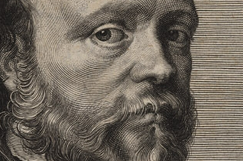
Kenelm Digby
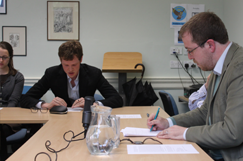
Joe fields questions
On 7 June, Joe Moshenska (University of Cambridge) spoke about the letters of natural philosopher and courtier Kenelm Digby (1603-1665), focusing especially on the impact his 1636 reconversion to Catholicism had on the nature of his correspondence. Although at the time Digby was viewed as an emblem of frivolity for being swept along in the series of fashionable Roman Catholic conversions of the 1630s, Joe showed, through a close reading of a number of letters, that Digby had actually been engaged in serious theological debate, regularly disputing with other thinkers about the true origins of the church. Digby’s correspondence was also used by Joe as a case study to explore more general questions about early modern letters. For instance, should the courtier’s 100-page work on the early church fathers, which was written in an epistolary fashion, be considered a letter or a treatise? What actually constitutes a letter? Furthermore, did early modern people assume that all letters were public documents unless the writer specifically indicated otherwise? Were explicit epistolary requests for secrecy, as found, for example, in Archbishop Laud’s letter to Digby after the latter’s conversion, genuine or mere rhetorical posturing? These and other questions about the primacy or authority of different letter versions – manuscript copies versus printed editions, for example – aroused productive methodological debate in the question and answer session.
 Podcast available on the seminar page!
Podcast available on the seminar page!
Editing Evelyn Editing Evelyn
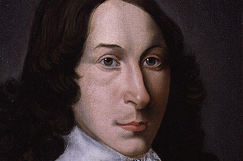
John Evelyn
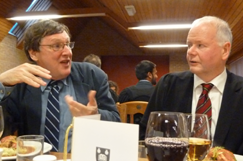
Discussions continue over dinner
David Galbraith (University of Toronto) brought the seminar series to an edifying close on 14 June with a paper describing the challenges of editing John Evelyn’s letterbook while also situating it within the context of his other, better-known works. Evelyn is an example of an early modern auto-archivist who, after an illness in the 1680s, began the task of reconstructing his papers for posterity in his diary and across four letterbooks. Like editors and archivists today, he used headnotes to identify his correspondents as well as an index, although he evidently had trouble dating some of his earlier communications. According to David, researchers have tended to focus solely on the diary, but it and the letterbooks were in fact parallel projects used by Evelyn as instruments of self fashioning in which he cast himself sometimes as a mediator or cultural broker between different social worlds, and other times as an agent in the transmission of knowledge or as an instructor in morality. David argued that the letters, more so than the diary, reveal a more personal side to Evelyn; he comes across as a funny, witty individual who was adept at self parody and who enjoyed the intimacy afforded by the epistolary genre. Furthermore, the letters, characterized by much stylistic variation, offer details of Evelyn’s life that are simply not found elsewhere in his oeuvre. For instance, John Beale is never mentioned in the diary, yet was Evelyn’s most prolific correspondent on gardens, a topic of enormous importance to the creator of Elysium Britannicum, an encyclopaedic assemblage of horticultural knowledge, practice, and wisdom of the seventeenth century.
 Podcast available on the seminar page!
Podcast available on the seminar page!
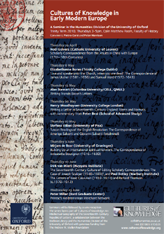
2010 Series and Podcasts
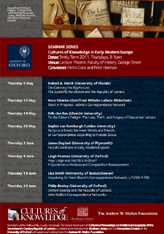
2011 Series and Podcasts
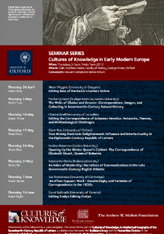
2012 Series and Podcasts
We wish to thank all twenty-six speakers, our hard-working convenors, our many chairs from within and beyond the Project, and our loyal audiences for contributing to the success of our three seminar series since 2010.

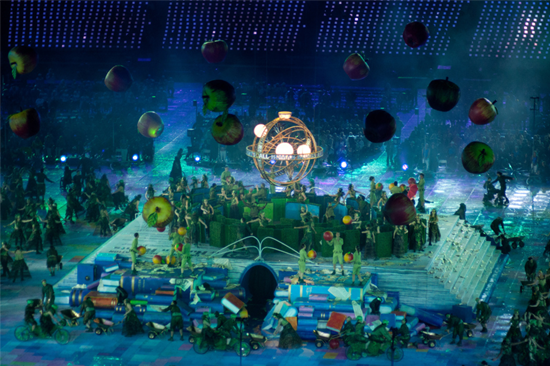
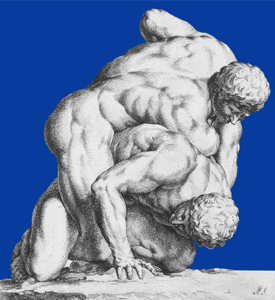
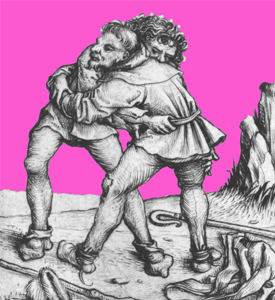








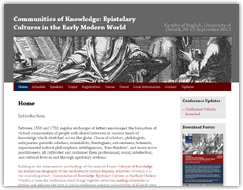
![Caricature, from a South Sea Bubble card. 1720. (Reproduced in Charles Mackay, Extraordinary Popular Delusions and the Madness of Crowds. [London, 1857], p. 61; image sourced from Wikimedia Commons).](../../../../wp-content/uploads/2012/07/Bubble_Cards.png) As world economies stagger from one crisis to the next and headlines flip-flop between the Eurozone emergency and the scandal of inter-bank lending rate fixing, EMLO provides valuable historical insights into financial turbulence and the effects of similar bubbles and crashes. We may face fresh causes of fiscal breakdown today, but the boom and bust cycle is far from new.
As world economies stagger from one crisis to the next and headlines flip-flop between the Eurozone emergency and the scandal of inter-bank lending rate fixing, EMLO provides valuable historical insights into financial turbulence and the effects of similar bubbles and crashes. We may face fresh causes of fiscal breakdown today, but the boom and bust cycle is far from new.
 Join
Join 